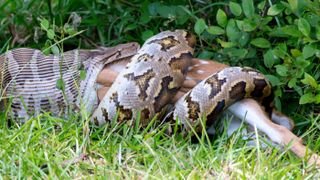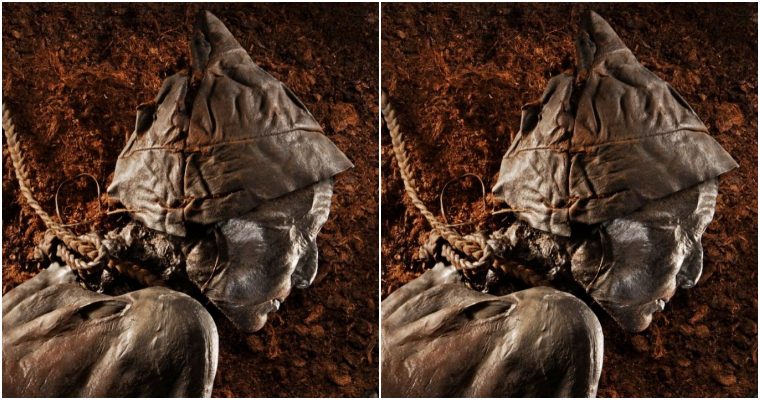This python’s jaw has a stretchy secret to gape impressively wide

The invasive Burmese pythons slithering through the Florida Everglades eat almost anything they can get their jaws around—and that’s a lot. As their numbers have risen, small mammal populations have plummeted. But larger animals aren’t safe either; people have spotted these pythons swallowing alligators and white-tailed deer whole. How does a snake with a mouth a few inches wide devour something that huge?
Answer: They open their mouths very wide, with the help of some newly measured stretching power. A recent study shows Burmese python mouths can stretch four times wider than their skulls, creating a gaping maw four to six times bigger than that of a similarly sized brown tree snake.

Most snakes cannot take bites and must engulf their prey whole. To do so, a typical snake opens the joint in the middle of its jaw, and the two halves flare out to the sides; the skin and muscle in between stretch to accommodate the food. The skin eventually snaps back, but “after they swallow a very big meal, [their chins] are baggy for a while,” says University of Cincinnati vertebrate morphologist Bruce Jayne.
And some snakes can open wider than others. For their study in Integrative Organismal Biology, Jayne and his colleagues examined Burmese pythons from Florida and brown tree snakes from Guam (where the latter are invasive). After taking anatomical measurements of snakes after death, the researchers stretched the reptiles’ jaws with funnels of increasing size. Finally, the scientists stuffed potential prey—including young, anesthetized alligators—through the funnels and measured deer remains recovered from a python stomach.
The experiment showed just how wide each species’ mouth could get. The secret to the Burmese pythons’ superior skill? Extra stretch in the tissues between their jaw bones. Some 43 percent of their gap width capacity could be attributed to this tissue, compared with the tree snakes’ 17 percent.
According to Marion Segall, a herpetologist at London’s Natural History Museum, who was not involved in the study, the two distantly related invasive snakes make a good comparison because they have each evolved to snag large prey for their sizes. Future work will explore what properties make the pythons’ jaw skin so flexible.

Just because a python can eat a whole deer doesn’t mean venison is often on the menu. “Most [tree snakes and pythons] are opportunistic and will catch anything that passes by, [so] they will probably not target the largest prey,” Segall says. But to avoid presenting such an opportunity in the Everglades, even a big deer should probably sleep with one eye open.
source: scientificamerican.com








